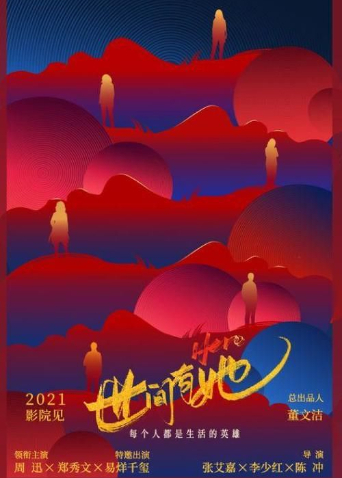 申彗星
申彗星
发表于2分钟前回复 :阿里斯塔雷恩90年代的电影代表作. 《世界上的某个地方》无疑是具有传奇色彩的一部阿根廷影片, 不仅因为它的影片质量和艺术性上乘, 而且因为它独一无二的传奇经历. 1992年, 阿根廷电影协会本来把此片作为参赛影片角逐当年的奥斯卡最佳外语片奖, 但后来考虑到影片题材敏感等问题临时改变决定由另一部作品取代。导演一气之下决定去他妻子的国家乌拉圭作为乌拉圭的官方参赛作品,因为他妻子的国籍是乌拉圭而且参与了小部分影片的编剧。后来这部完全由阿根廷国籍的导演,演员和主创人员拍摄,却代表乌拉圭参赛的影片真的入围了最后的角逐,而可笑的那部临时更换的阿根廷参赛作品却落选了。这让奥斯卡最佳外语片评委会感到很难办,影片确实优秀,但如果把奖颁给它就违反了一部影片只能代表大多数主创人员国籍的国家参赛的规定等于默许了这类事件,所以最后评委会还是以种种理由把奖给了另一部影片,虽然实际上这部影片才是其中最好的一部。导演一气之下,决定永远不在美国发行本片,而从此奥斯卡组委会也因此修改了规则使外语片的上报过程更透明和严格化。而本片也成为奥斯卡历史上唯一的一部曾代表两个不同国家的官方作品角逐最佳外语片的电影.
 凯莉米洛
凯莉米洛
发表于5分钟前回复 :Middle class student Bob Letellier enters a new world when he meets Alain, a free-thinking rebel who, along with his group of young Parisians, has opted for a life of instant gratification instead of work and commitment. At a party, Bob meets a young woman, Mic, who appears to be just as carefree and cynical as Alain. Mic's only dream is to own a luxury car, and with Bob's help, she manages to find the money to but it. Mic's friend Clo discovers she is pregnant and, not knowing who the father is, she asks Bob to marry her. When they next meet at a party, Bob and Mic deny that they have any feelings for one another - a declaration that soon leads to tragedy...Marcel Carné is widely regarded as one of the standard bearers of French quality cinema of the 1930s and 1940s, responsible for such masterpieces as Quai des brumes (1938) and Les Enfants du Paradis (1945). How ironic then that, in 1958, towards the end of his film-making career, he should make a film which dared to portray the attitudes and behaviour of the 1950s youth, in a way that effectively captures the mood and sentiment of the time.Les Tricheurs was a hugely controversial film, not least because of its blatant depiction of adolescent free-love, and was even banned in some regions of France. It also received some intensely unfavourable reviews, most notably from the young hotheads on the Cahiers du cinéma such as François Truffaut who cited this film as a prime example of the decline of French cinema into mediocrity. In spite of all this negative press, the film proved to be an astonishing commercial success, attracting five million cinema-goers, and was awarded the Grand Prix du Cinéma français in 1958.Whilst Les Tricheurs is not as flawless as Carné's earlier masterpieces, it is nonetheless a significant work, having the power to both shock and move its audience, whilst having great entertainment value. It evokes the mood of its time in a way that few French films of this period did, depicting young people as pleasure-seeking rebels, rejecting the austerity and discipline of the previous generation whilst pursuing a life without cares, responsibilities or love. Similarities with James Dean's films of the 1950s (most notably Rebel without a Cause) are apparent, although Carné's treatment of young people is far more abstract - in his film they merely symbolise a world that has lost its way, more or less victims of post-war prosperity. Although the young people in Les Tricheurs lack the authenticity to be totally credible, the film does make an important, and indeed quite disturbing point, about where the permissive society may be heading.Much of the pleasure of the film is in the performances from its four lead actors, Jacques Charrier, Pascale Petit, Laurent Terzieff and Andréa Parisy, although only Terzieff is really convincing in his role. Marcel Carné originally considered Alain Delon and Jean-Paul Belmondo for the parts of Bob and Alain respectively, before opting for Charrier and Terzieff. As a consolation, Carné offered Belmondo a smaller part in the film - alas too small for the actor to be noticed by the public. Belmondo's breakthrough had to wait until the following year when he starred in Jean-Luc Godard's revolutionary A bout de souffle, a film which offers a very different perspective of the youth generation.

